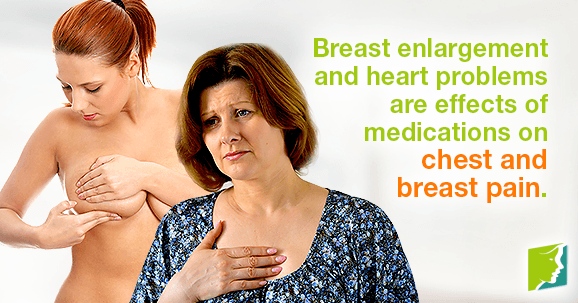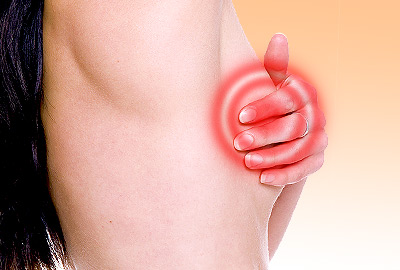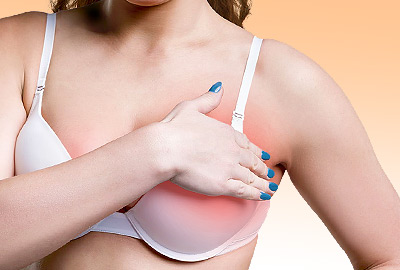Chest and breast pain are two separate conditions with differing causes and are rarely related. Breast pain is characterized by a sharp pain in one or both breasts, and is normally caused by hormonal factors. Chest pain, on the other hand, is characterized by a burning or uncomfortable internal sensation around the heart or ribcage area. The causes of chest pain are numerous, and are often related to issues of the heart or digestive system. Read on to discover more about heart and chest pains and the effects of medications on them.
Chest Pain
Chest pain can come with an array of indicators and symptoms. A few commonly described symptoms are:
- A pressure, fullness, or tightness in the chest
- A crushing pain that moves to the back, neck, jaw, shoulders, and arms
- Trouble swallowing
- A pain that increases when you breathe deeply or cough
- A feeling of tenderness when you push on your chest
The possible causes are many, and are mainly due to heart and digestive issues. A few of the main causes are listed below:
- Angina. This is characterized by a thick plaque building up on the inner walls of arteries.
- Pericarditis. This is a short-term viral infection that results in inflammation of the sac surrounding the heart.
- Heartburn. A result of stomach acid washing up to the esophagus.
- Swallowing disorders. These can be caused by any disorder of the esophagus.
Breast Pain
The most common reason for breast pain is hormonal fluctuations, and this is termed cyclical breast pain. The cyclical type can normally be predicted and disappears when hormone levels restabilize, with women often experiencing it during their menstrual cycle or menopause. Non-cyclical, on the other hand, happens seemingly randomly and is normally a result of muscle trauma.
The Effects of Medications
There are certain medications, such as birth control and antidepressants that may have a negative impact on chest and breast pain. However, Hormone replacement therapy is the principal cause of chest and breast pain when taking for long time. Tell your doctor if any of these symptoms are severe or do not go away.
Breast tenderness
HRT is often associated with breast tenderness for the first few weeks. The effect is different for each woman, and some even find it stops pain in their breasts. However, many women find it does cause breast pain, although this often goes away after a few weeks.
Breast enlargement
It is often associated with breast pain as a side effect of HRT. In addition, breast enlargement can be the first sign of breast cancer. Women should not take HRT for more than 2 years to relieve menopausal symptoms because it increase breast cancer risk.
Heart problems
HRT have been associated with negative side effects, including heart problems. Some women find that they experience chest pains when taking this medication, and it is known to increase the risk of heart attack.
The effects above are a few examples of side effects on chest and breast pain, but there are others. If you do begin to suffer from either condition after taking medication, it is important to seek medical advice, especially if the pains are intense and come with unusual symptoms.
Sources
- Brown University Health Promotion. (n.d.). Birth Control Pills (BCPs). Retrieved September 15, 2014, from http://www.brown.edu/Student_Services/Health_Services/Health_Education/sexual_health/safer_sex_and_contraceptives/birth_control_pills.php
- Harvard Health Publications. (2005). Breast pain isn't just a menstrual complaint. Retrieved September 15, 2014, from http://www.health.harvard.edu/press_releases/breast_pain
- National Breast Cancer Foundation. (n.d.). Breast Pain. Retrieved September 15, 2014, from http://www.nationalbreastcancer.org/breast-pain
- National Institutes of Health. (2010). Estrogen and Progestin (Hormone Replacement Therapy). Retrieved September 15, 2014, from http://www.nlm.nih.gov/medlineplus/druginfo/meds/a601041.html




